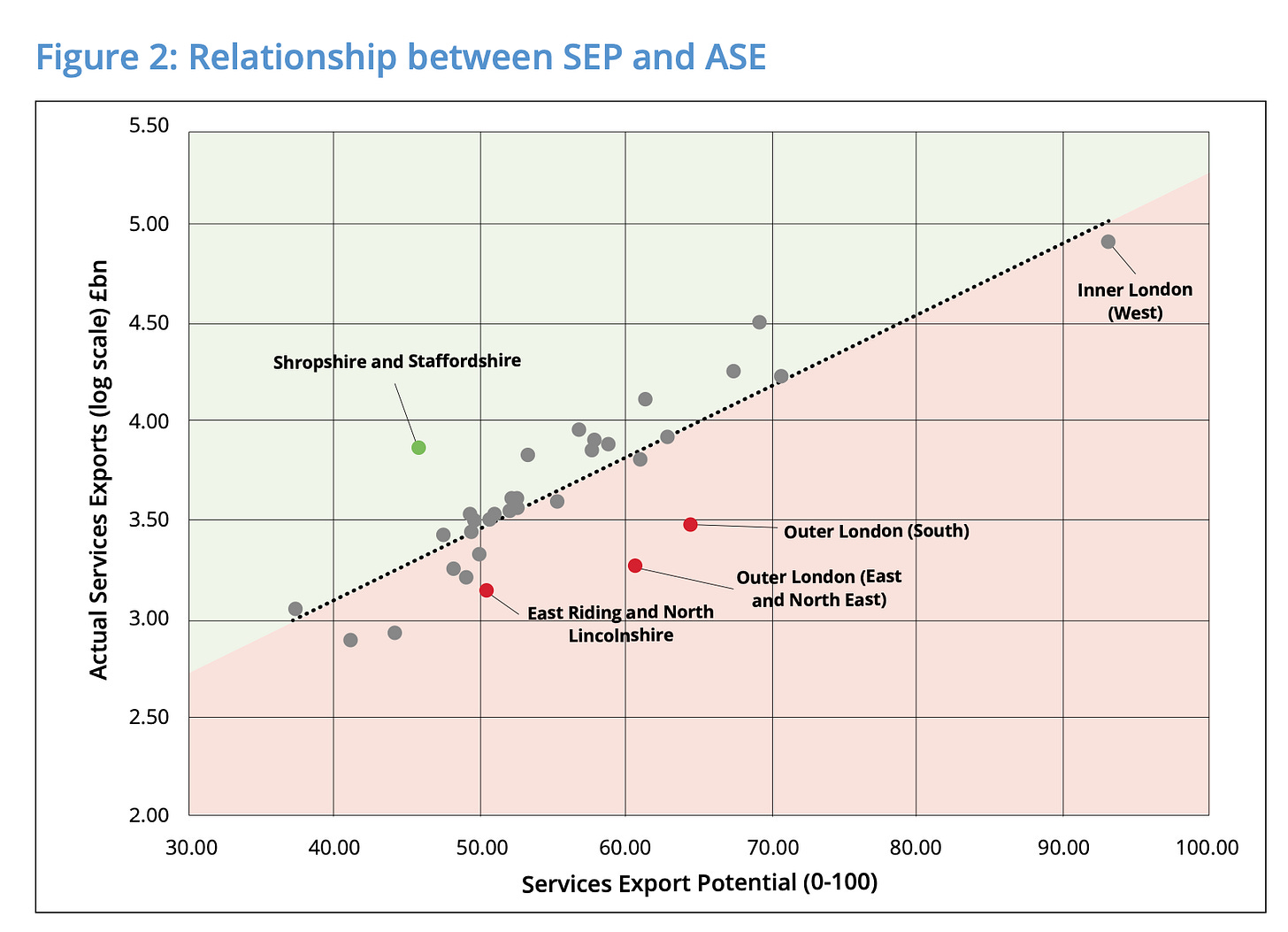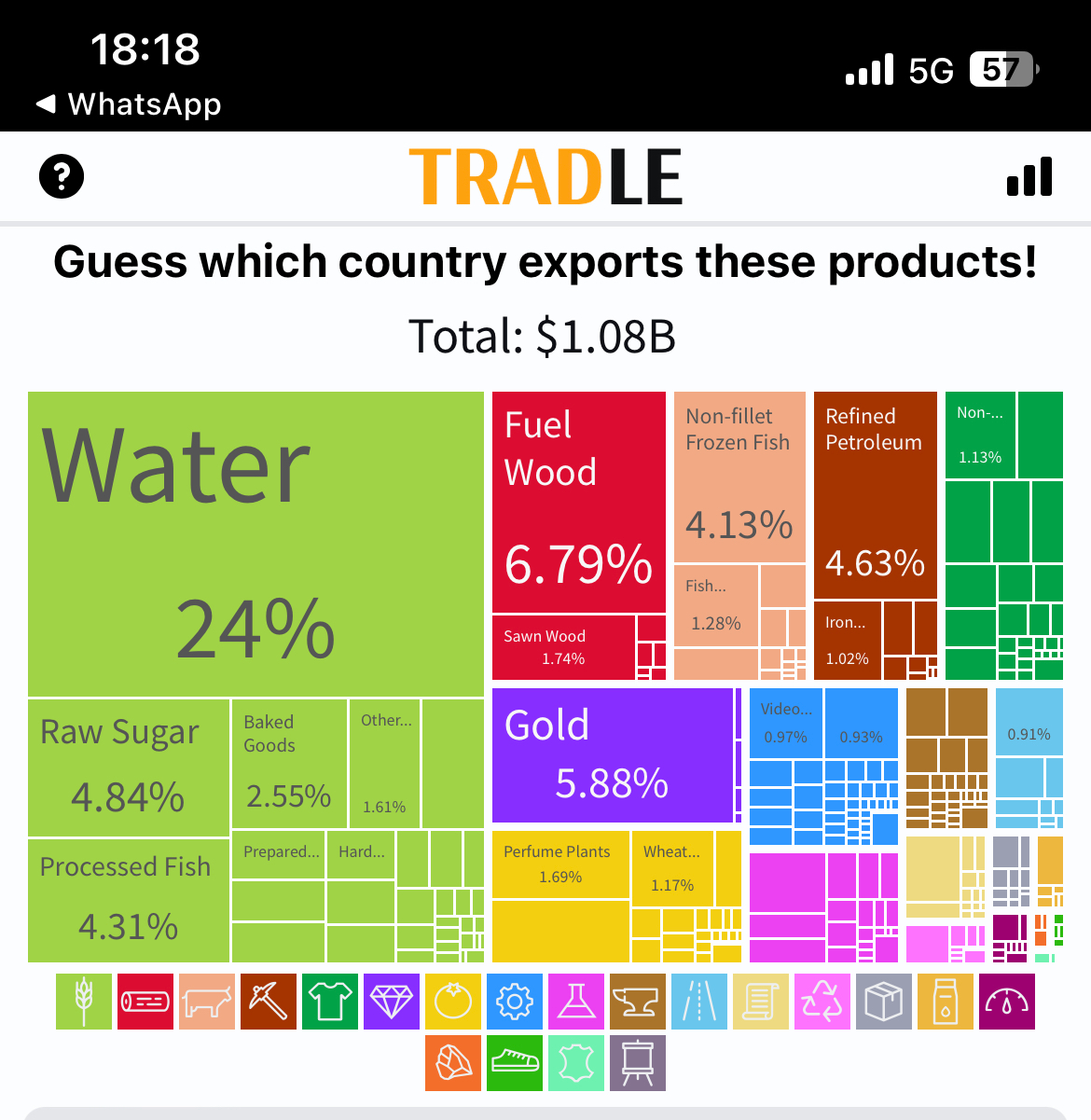Most Favoured Nation: The War on Drugs
Saving Brussels Midi, Services Export Potential, Tradle, Digital Trade and More
Welcome to the 107th edition of Most Favoured Nation. This week’s edition is free for all to read. If you enjoy reading Most Favoured Nation, please consider becoming a paid subscriber.
If you’ve been reading the Brussels news over the summer, you may have heard that the city (well, Brussels Midi train station) has been flooded with crack cocaine.
But where is all the crack cocaine coming from, and how is it getting to Brussels?
It turns out the European Monitoring Centre for Drugs and Drug Addiction published some research on this last year, and the answer seems to be that the drugs come from South America and enter the EU via container ports, mainly Antwerp.
So, given everyone knows all the drugs are coming through Antwerp, why aren’t the authorities doing something to stop this?
The counterintuitive reason is that — in a modern free market economy — the optimum number of drugs on the street isn’t necessarily zero.
I’ve written about this before in the context of border management, but to repeat myself: in his book Lying for Money, Dan Davies makes the case that, assuming you want to live in a high-trust society (which you should because it’s better), then a bit of crime is a price well worth paying to not live in a world where every single transaction outside of your immediate family (or even maybe within it too) requires an enormous amount of due diligence, assurances, etc.
And all of this applies to border regimes as well. If you want to ensure that every single thing entering and leaving the country meets all of the appropriate rules, has paid the correct taxes, is not actually crack cocaine, etc., then you’ve probably got to have government officials check every single consignment. But that would mean, in practice, pretty much no international trade because no one has the time or money to put up with that nonsense
This is why the question for governments is never actually, “How can we remove crack cocaine from the streets entirely?” It’s “How much crack cocaine are we willing to put up with for the sake of a commercially efficient economy?”
So yeah, the secret ingredient of the modern global economy? A little bit of crime.
Services Export Potential
Beyond free trade agreements, there are lots of reasons why some companies export and some do not and why some parts of a country tend to be more outward-looking than others.
In the context of services exports, intuitively, regions with better international and digital connectivity, higher degrees of economic complexity, better access to skilled labour and investment in R&D will fare best.
Drawing on this observation, in a new paper for the Institute of Export & International Trade, Flint Global colleagues and I created a new indicative framework for assessing the Services Export Potential of UK regions and used it to assess which bits of the UK are outperforming in terms of actual services exports, which are performing as expected, and which are underperforming.
As you can see from the chart below, most regions are performing as expected, relative to potential. This may sound like a dull finding, but from a policymaking perspective, it is quite useful! It suggests that the actual services exports of poor-performing regions can be improved via interventions to lift their potential, such as investment in skills and connectivity.
Also, some of the outliers are quite interesting. Can anyone guess why the Shropshire and Staffordshire region outperforms its potential? Answers on a postcard/email/in the comments below.
Tradle
Loads of you love Tradle. I’m terrible at it, mainly because rather than being about trade it actually is a test of whether you are a massive geography nerd. Anyhow, my colleague Alex White, who is a massive geography nerd, sent me this one earlier in the week, and it is nuts:
Apparently, the answer is Fiji. Because the modern economy is bonkers and Fiji Water is actually from Fiji (who knew?).
Chart of the week
In his new paper mapping the EU’s approach to digital trade, Nicolas Köhler-Suzuki presents the following chart, which demonstrates that, contrary to popular belief, the EU does a lot of digitally driven trade.
Other things
Dairy dispute. One of my favourite things about Canada is that it pretends to liberalise access to its domestic dairy market in its free trade agreements and then makes it nearly impossible for foreign firms to access the tariff-rate quotas that offer the preferential duty rates. Genius. Anyway, New Zealand doesn’t find it as amusing as me, and brought a case against Canada under CPTPP, which it has now won (although the Canadians are pretending they actually won). The ruling found that Canada’s approach to administering its dairy quotas is not in line with its CPTPP obligations. So now Canada will change how its administers them to ensure New Zealand (and other CPTPP members) have fair access, right? RIGHT? [Ed: I wouldn’t bet on it.]
Trade defence. The EU published the 2022 overview of its trade defence activities. The topline findings: At the end of 2022, there were 177 trade defence measures in place, 151 of which were anti-dumping, 25 anti-subsidy and 1 safeguard. 38 of the measures in force were the result of anti-circumvention investigations. There were 5 new and 41 review investigations opened compared to 14 and 28 respectively in 2021. The Commission imposed 11 definitive measures in 2022 compared to 12 in 2021.The highest number of EU trade defence measures concern imports from China, Russia, India, Korea and the US.
Bored of Trade. Ben Ramanauskas, a former advisor to then-UK-trade-secretary Liz Truss, has written a rather amusing piece about his experience dealing with the UK’s Board of Trade. If you have no idea what that is, find out here.
Best wishes,
Sam








I have noticed quite a few consultancy tenders in Staffs region over the past couple of years.
Maybe that coululd stimulate a 'crowding in' effect in the region?
Just in relation to the point made regarding a little bit of crime helping a highly trusting society, I would also argue that a good proportion of a modern legitimate economy depends upon crime.